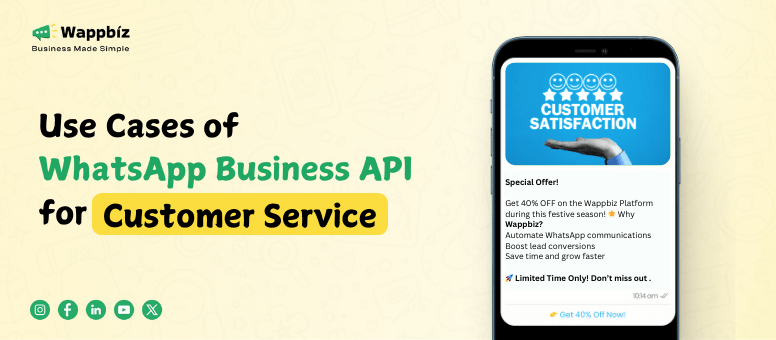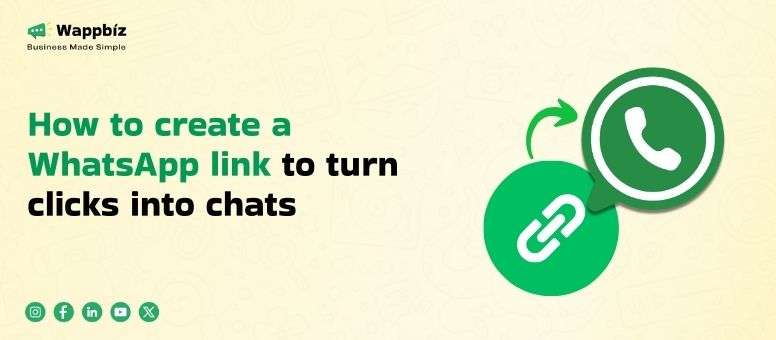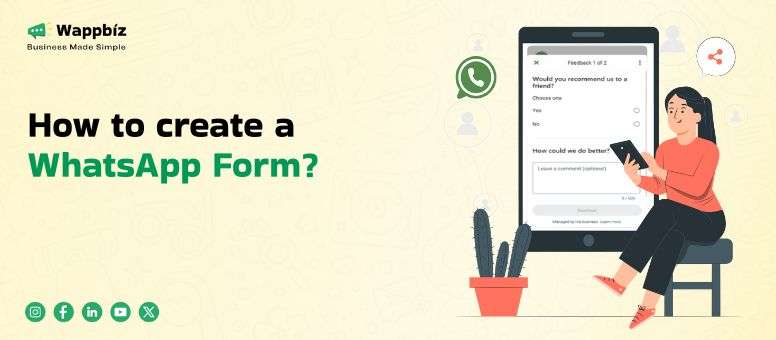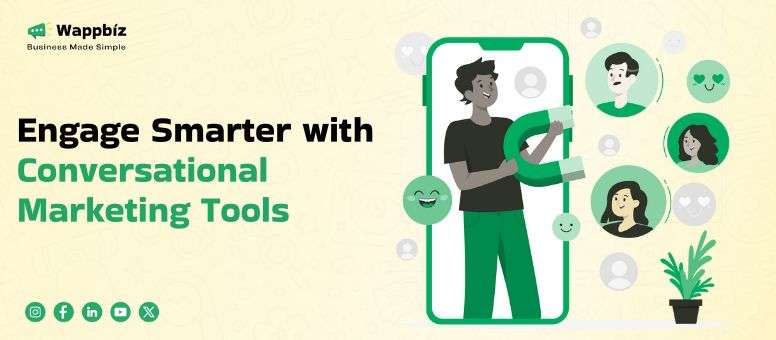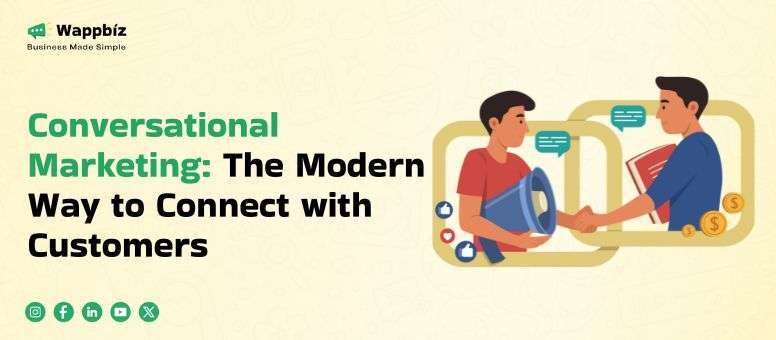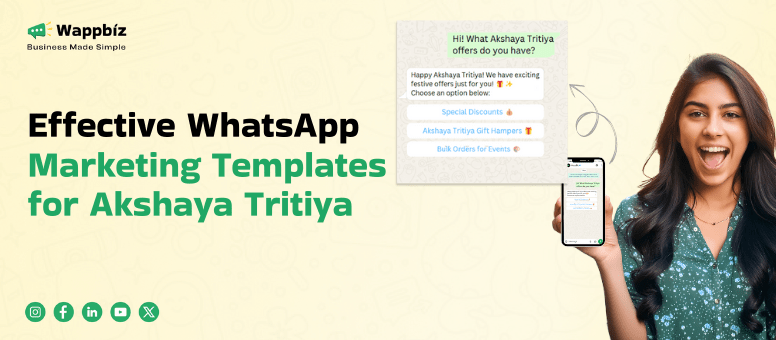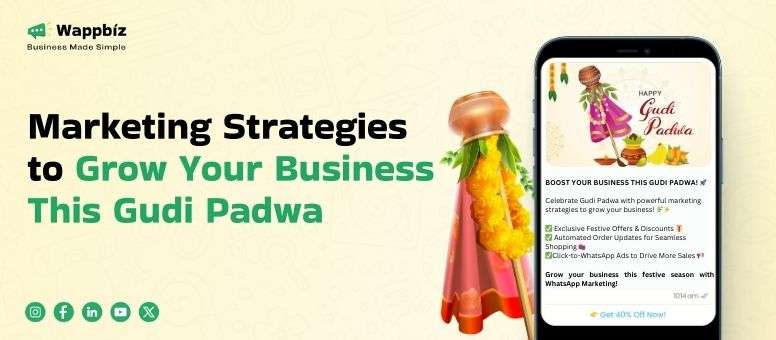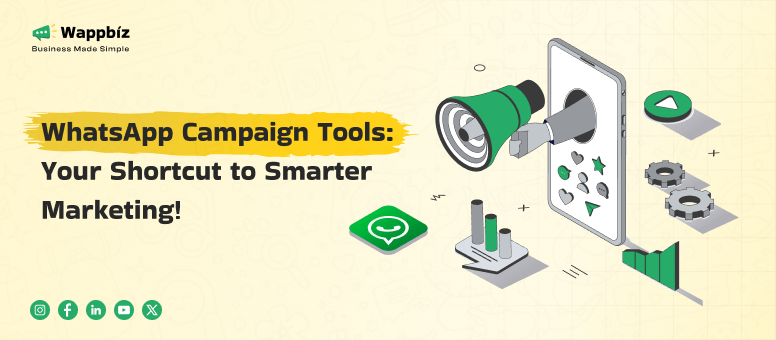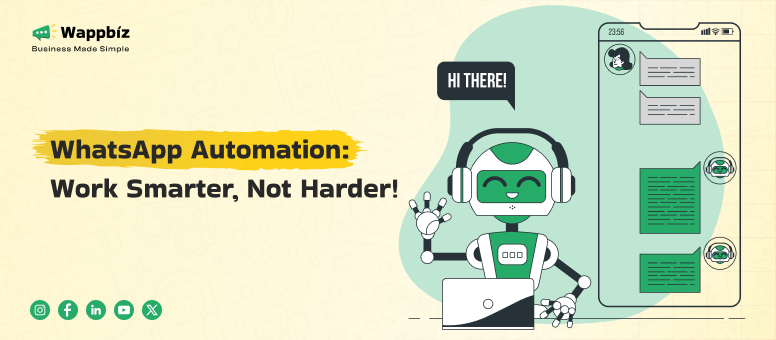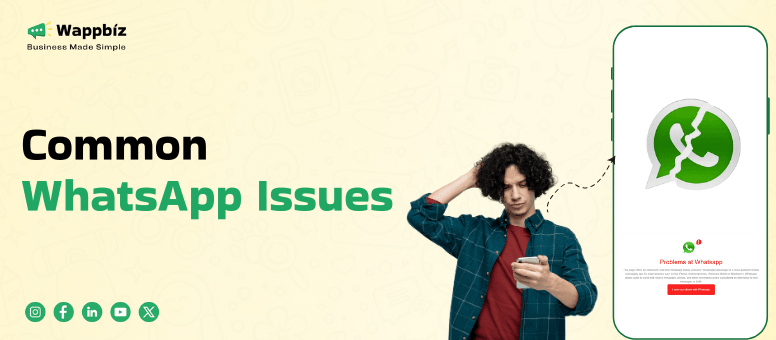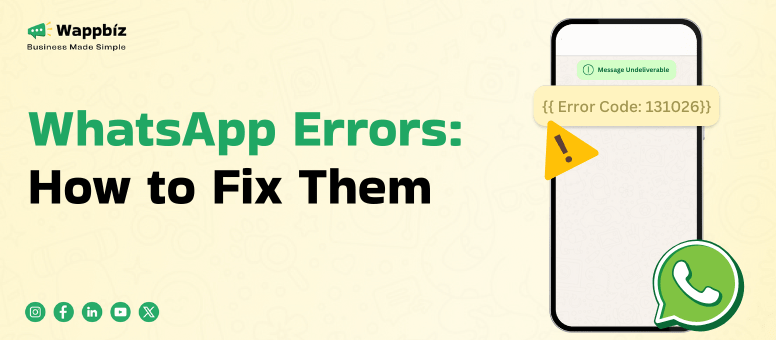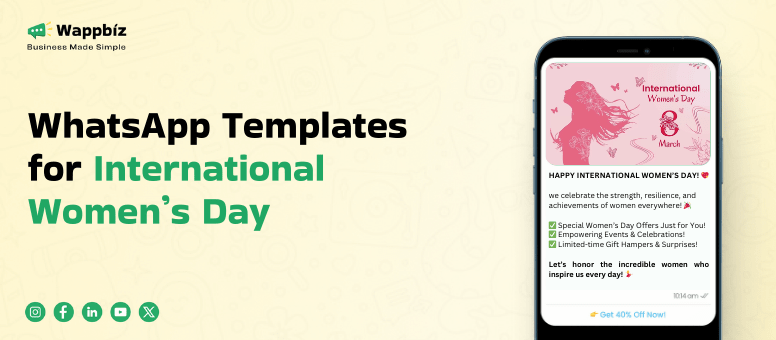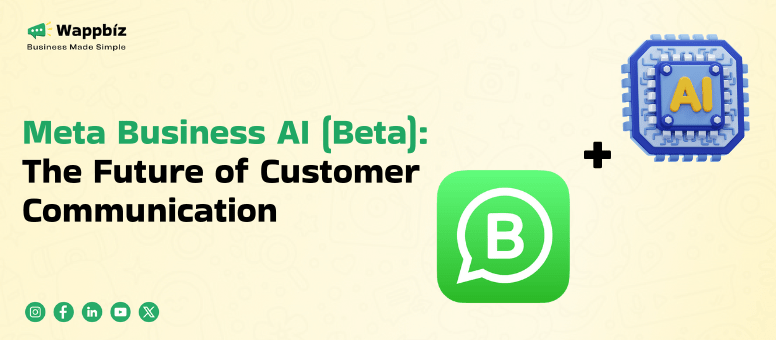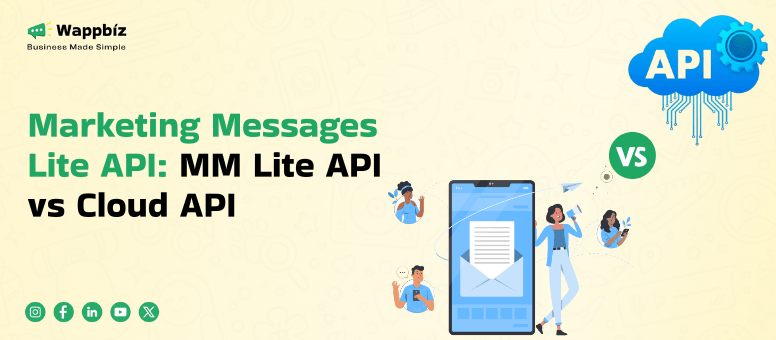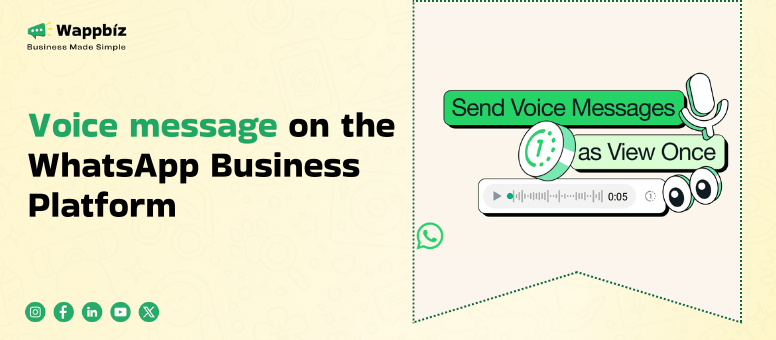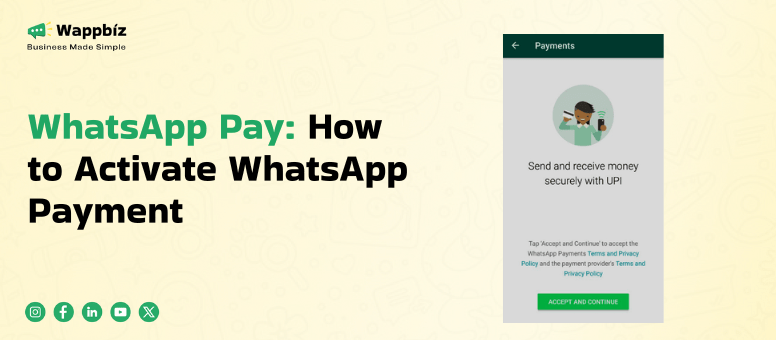Are you prepared for a future where customer service is easily accessible through messaging? The WhatsApp Business API is making instant support possible, allowing businesses to answer inquiries, provide order updates, and even offer live troubleshooting directly in the app. With the WhatsApp API tools like Wappbiz, companies are keeping customers engaged, informed, and satisfied, all while boosting their own efficiency. In a landscape where customer expectations are higher than ever, WhatsApp provides a bridge for timely, seamless communication that builds trust and strengthens customer relationships.
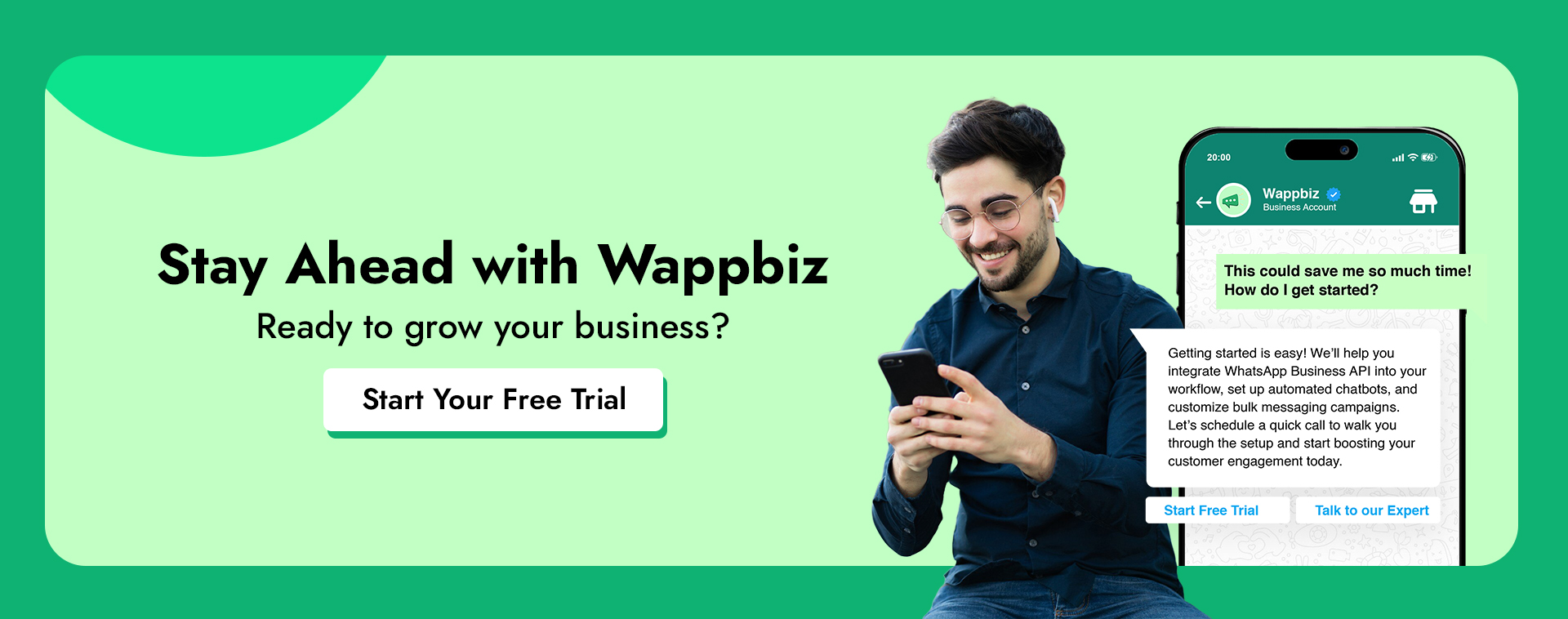
Why is the WhatsApp business API important for customer service?
WhatsApp is one of the most popular messaging apps in the world, with 2 billion+ active users. With this widespread adoption, customers expect that businesses will be wherever they are. The WhatsApp Business API is a fantastic customer service tool that provides real-time support, instant responses, and personalized interactions. Thanks to features like WhatsApp Chatbots and WhatsApp Automation, businesses can support their customers 24/7, accelerate the resolution of customer issues, and power a seamless service experience.
Wappbiz seamlessly integrates WhatsApp, enhancing communication between businesses and customers. WhatsApp is revolutionizing customer service by enabling the easiest and quickest way to meet customers needs, increase loyalty, and drive customer satisfaction through a single point of contact, the most preferred channel by several end users.
20 Use Cases of WhatsApp Business API for Customer Service
Instant Query Resolution
A customer can get instant responses on WhatsApp; there is no waiting in a queue or looking for an answer to FAQs!
For example, when a customer inquires about the availability of a product in your store, you can promptly respond via WhatsApp, ensuring its availability and delivering exceptional service. For urgent queries, this real-time communication establishes trust and increases customer satisfaction. Quick replies help in reducing frustration and showing that the company is appreciating customers’ time, thus aiding a better customer experience and assisting in retaining customers.
24/7 support with chatbots
WhatsApp chatbots allow you to be available 24/7 for your customers, solving their queries.
For example, when a customer requires assistance at midnight, they can communicate with a chatbot to resolve routine queries such as tracking order status or product details. The 24/7 availability makes it easier for customers to get assistance at any time, leading to improved accessibility. Constant service eases the load of daytime requests, boosts customer satisfaction, and caters to a broader spectrum of customer needs, regardless of the location.
Order Tracking Updates
Businesses can also send real-time order tracking updates via WhatsApp, keeping customers updated in every step of the process.
For example, when an order ships, it automatically notifies the customer with tracking information and the estimated delivery time. Knowing the location of a product is beneficial as it alleviates concerns about delivery status and facilitates customer engagement throughout the purchase process. Regular monitoring will assist customers by fostering a sense of control, reducing follow-up inquiries, enhancing trust, and improving the post-purchase experience.
Personalized Assistance
WhatsApp allows customer service teams to personalize their tools according to preferences and past behavior.
For example, a customer who frequently purchases skincare items may receive targeted recommendations for related products. This personal touch shows customers that the business understands their needs, creating a stronger connection. By tailoring suggestions to each customer, companies not only enhance the customer experience but also increase the likelihood of additional purchases, turning customer interactions into personalized shopping experiences.
Appointment scheduling
Businesses can use WhatsApp to streamline appointment booking and confirmations, enabling customers to book or reschedule appointments with ease.
For example, a dental clinic can utilize WhatsApp to verify an appointment and send reminders prior to the appointment date. This fully automated system assists in reducing the frequency of no-shows and allows customers to manage appointments using a widely used messaging platform. Offering customers an easy way to schedule appointments makes things more efficient for a company while also ensuring customers never miss out on sharing their schedules.
Feedback Collection
Businesses can collect feedback directly after a customer interacts with a service through WhatsApp, enabling them to continuously improve.
For example, a customer might receive a WhatsApp message asking for a brief rating or review following an online purchase. However, this real-time feedback is precious for businesses, as it reveals their drawbacks and indicates that the stakeholders are hearing what their customers think. WhatsApp feedback collection provides customers with an effortless channel to provide their feedback and allows the company to continually improve its service.
Product recommendations
Companies can suggest products that match customers needs and buying behavior via WhatsApp.
For example, if a customer has recently purchased a camera, they could receive recommendations for complimentary lenses or other accessories. They make it more personalized and provide customers with relevant products to find, enriching their shopping experience. Since the business has taken efforts to get relevant solutions via WhatsApp and not just mass promotions, customers feel valued. This makes it more likely that they will make further purchases, transforming customer interactions into the opportunity for deeper engagement.
Proactive Issue Resolution
An easily integrated feature, WhatsApp helps businesses alert customers ahead of time about any expected issues, including delays or service interruptions.
For example, an airline could serve as informing passengers via WhatsApp about their flight delay and providing rebooking options. This proactive approach encourages confidence in the customer due to transparency from the business. Customers appreciate timely updates about disruption, and companies can foster positive relationships while avoiding frustration by dealing with things before consumers make a complaint.
Documentation Sharing
Businesses can also transmit important papers like bills or receipts straight to customers via WhatsApp.
For example, a customer purchasing electronics could receive a digital warranty on WhatsApp, which they can access at any time. They streamline the management of documents for both customers and companies, significantly reducing the need for printed copies. By providing important documents digitally, businesses improve customer convenience and demonstrate environmental responsibility, while customers benefit from having simple access to essential information.
Payment Reminders
Businesses can use WhatsApp to send reminders about upcoming payments, which reduces missed deadlines.
For example, if a customer’s utility bill is due soon, the producer can alert them in advance, allowing them sufficient time to prepare and avoid late fees. These timely reminders keep customers in the loop, help them make for a better experience with the company, and reduce billing problems. Payment reminders are beneficial for both the company and the customer, as they promote timely payments, reducing the need for follow-ups and helping customers avoid penalties.
Service renewal reminders
Customers can also use WhatsApp to remind them about their upcoming subscription-based service renewals.
For example, a streaming service can tell a customer about their subscription renewal date and inform them to decide on it. This reminder helps customers have enough time to decide whether they want to renew or not, thus minimizing accidental cancellations. When companies notify customers of renewals, they stay present in the conversation and convey that convenience is a priority in the customer relationship, allowing consumers to seamlessly remain engaged.
Promotion of Special Offers
Brands can use WhatsApp to offer special promotions or discounts to customers.
For example, a clothing retailer could tell customers that there is a sale over the weekend, resulting in increased footfall and website visitors. It helps businesses reach consumers who are already interested, which enhances the chances of conversions. Sending special offers via WhatsApp can make a customer feel valued and retain them within the brand, which increases sales as well as nurturing relationships with customers.
Help With Process of Returns and Refunds
Provide a clear return or refund process through WhatsApp.
For example, a customer who needs to return the product will receive a message regarding the return policy and how to send it back. This guidance simplifies the return process with fewer queries for the customers to interact with, resulting in better customer satisfaction. Companies facilitate the return process for customers, ensuring a positive experience even in the event of an unsuccessful purchase and thereby fostering trust.
Fraud alerts and safety updates
WhatsApp is an ideal platform for financial institutions, as it allows them to instantly notify users about fraud alerts or other security-related issues.
For example, having real-time detection allows a bank to reach out to their customer if there is suspicious activity on an account, and they can act right away. This positive outreach inspires confidence in customers, communicating that the institution is taking steps to ensure their safety. Companies send out alerts using WhatsApp, ensuring widespread communication and reassuring consumers of their enhanced protection against such threats.
Product Warranty Reminders
Businesses can use WhatsApp to remind their customers who have an upcoming warranty expiration so they can take action at the appropriate times.
For example, businesses may target a consumer who has purchased a laptop with a warranty renewal reminder. Reminders for warranty renewals provide customers with a straightforward way to understand their coverage under original equipment parts. Warranty reminders demonstrate your commitment to their long-term satisfaction, fostering repeat business even after a purchase.
Account Activation Support
Using WhatsApp is one of the best ways to help new customers complete the account activation process.
For example, an online service could send instructions in phases to guide you through setting up your account. It helps in reducing the time it takes to onboard customers and decreasing customer frustration. This simplifies account activation, thereby providing new users a positive first experience with the company and ensuring that they are likely to continue using the product. Providing this kind of support shows how committed the company is to offering customer satisfaction at the outset.
Cross-selling opportunities
Businesses can double sales simply by recommending products from a complementary business based on previous purchases made through WhatsApp.
For example, a consumer that purchased a smartphone receives a recommendation for casings or headphones. Through cross-selling, these messages enhance the customer experience by guiding them toward useful accessories. Cross-selling via WhatsApp proves to be a hit since this medium helps in targeting personalized suggestions according to the interests of customers and enables your customers to feel valuable and connected with you while encouraging them to make some additional purchases.
Technical support assistance
Through WhatsApp, companies can provide swift technical support for complicated products and alleviate frustration.
For example, if a customer has difficulty installing a software product, then they can get instant support on WhatsApp with links to guides or videos. The quick turnaround reduces the downtime for customers and enhances their experience by finding the quickest solution to their problems. Offering real-time technical guidance will also ensure customers use them properly, increasing satisfaction and gaining confidence in the consumer to reach out as well to effectively resolve an issue with little friction, thus preventing returns.
Service Status Updates
Service-based businesses can use WhatsApp to keep customers informed about the status of ongoing services, ensuring transparency.
For example, a car repair shop can notify customers when their vehicle is ready for pickup. By keeping customers updated, businesses reduce uncertainty and improve trust. Updates on service status inform customers about completion times, enabling them to plan their day more effectively. This clear communication enhances the customer experience, making them feel prioritized and valued.
Loyalty Program Updates
You can use WhatsApp to inform customers about their loyalty points, rewards, and redemption options, thereby encouraging repeat interactions.
For example, a coffee shop could send a message to let customers know they reached a reward milestone and should come in for their free drink. Such reminders tend to attract customers back into stores, which increases the chances of second visits for those who are already loyal. When a customer is able to stay engaged with the updates from a loyalty program, it sends them positive signals in terms of rewards and value addition and helps build relationships as well as convert customers into repeat buyers.
Conclusion
Using the WhatsApp Business API, businesses can provide real-time customer service that is fast, personalized, and efficient. Incorporating WhatsApp campaigns into customer communication for inquiries, updates, and assistance enriches the experience and fosters customer loyalty with detailed WhatsApp Analytics. Wappbiz seamlessly integrates WhatsApp, ensuring customers have a fulfilling experience at every touchpoint.
Do you want to transform your customer service experience? Wappbiz combines WhatsApp integration for on-demand support and smooth engagements to keep your customers happy. Reach out to us now to elevate your customer service standards!

FAQs
In what way does the WhatsApp Business API help customer service teams?
The WhatsApp Business API allows your customer service teams to deliver quick and personalized support that keeps customers satisfied and engaged.
Can the WhatsApp Business API help businesses respond faster to their customer inquiries?
Absolutely! Customer service teams can respond with WhatsApp instantly, which makes it convenient to answer queries and resolve issues promptly.
Is the WhatsApp Business API really expensive for customer support?
No. WhatsApp offers a cost-effective and efficient way for customer service teams to respond to queries, thereby reducing their reliance on expensive call centers.
Can we collect customer feedback using the WhatsApp Business API?
Definitely! Customer service teams can ask for feedback alongside WhatsApp conversations, and businesses can use these findings to upgrade their service quality from real data.
Can you elaborate on how using the WhatsApp Business API can help in resolving the issue for customers?
WhatsApp stores every interaction in one place and helps customer service reps resolve problems quickly, thereby improving resolution times and customer satisfaction.
Does the WhatsApp Business API allow me to send notifications as well as reminder messages?
Absolutely! Teams can use WhatsApp to deliver reminders, confirmations, and updates, keeping customers informed without any effort on their part.
Can the customer support teams use the WhatsApp Business API for after-sales service as well?
Definitely, customer support teams can offer round-the-clock support, answer post-purchase questions, and boost retention via WhatsApp.

